ADHD: utilisation analysis
Page last updated: 30 October 2015
Drug utilisation sub-committee (DUSC)
June 2015
Abstract
Purpose
To review the utilisation of PBS-listed medicines used in the management of attention deficit hyperactivity disorder (ADHD).
Data Source / methodology
This analysis used three data sources: DUSC database, Medicare pharmacy claim data and Medicare Australia authority approvals data.
Key Findings
Over the five year period 2010-2014:
- The number of patients treated with PBS medicines for ADHD has risen steadily, with an annual increase of 5-8%, and 5 year growth of 31%.
- Similarly the number of prescriptions and PBS expenditure has also increased steadily.
- The most commonly used medicine is methylphenidate. The majority of prescriptions supplied for methylphenidate are as the modified release forms.
- Adults represent a slightly higher proportion of people treated over time, but do not constitute a higher proportion of people new to treatment.
- More males than females are treated, although the ratio is decreasing over time.
A snapshot of medicine use in 2014 shows that:
- The majority of prescriptions are written by a specialist, usually a paediatrician or psychiatrist. Most Australian states and territories restrict the prescribing of methylphenidate and dexamphetamine for the treatment of ADHD to specialist medical prescribers.
- Over 875,000 prescriptions were dispensed at a cost to the PBS of approximately $30 million.
- Rates of prescribing vary across states and territories. The rates of treatment in school-aged children are highest in the ACT, NSW and Queensland. Rates of treatment in adults are highest in Western Australia.
- 117,403 people were granted authority approval for a PBS medicine for ADHD. Of these:
- 32% were adults, 22% were adolescents, 43% were children aged 6-12 years and 2% were children under the age of 6.
- 24,232 started an ADHD medicine for the first time. The majority of people commence treatment with an immediate release product, most commonly methylphenidate.




